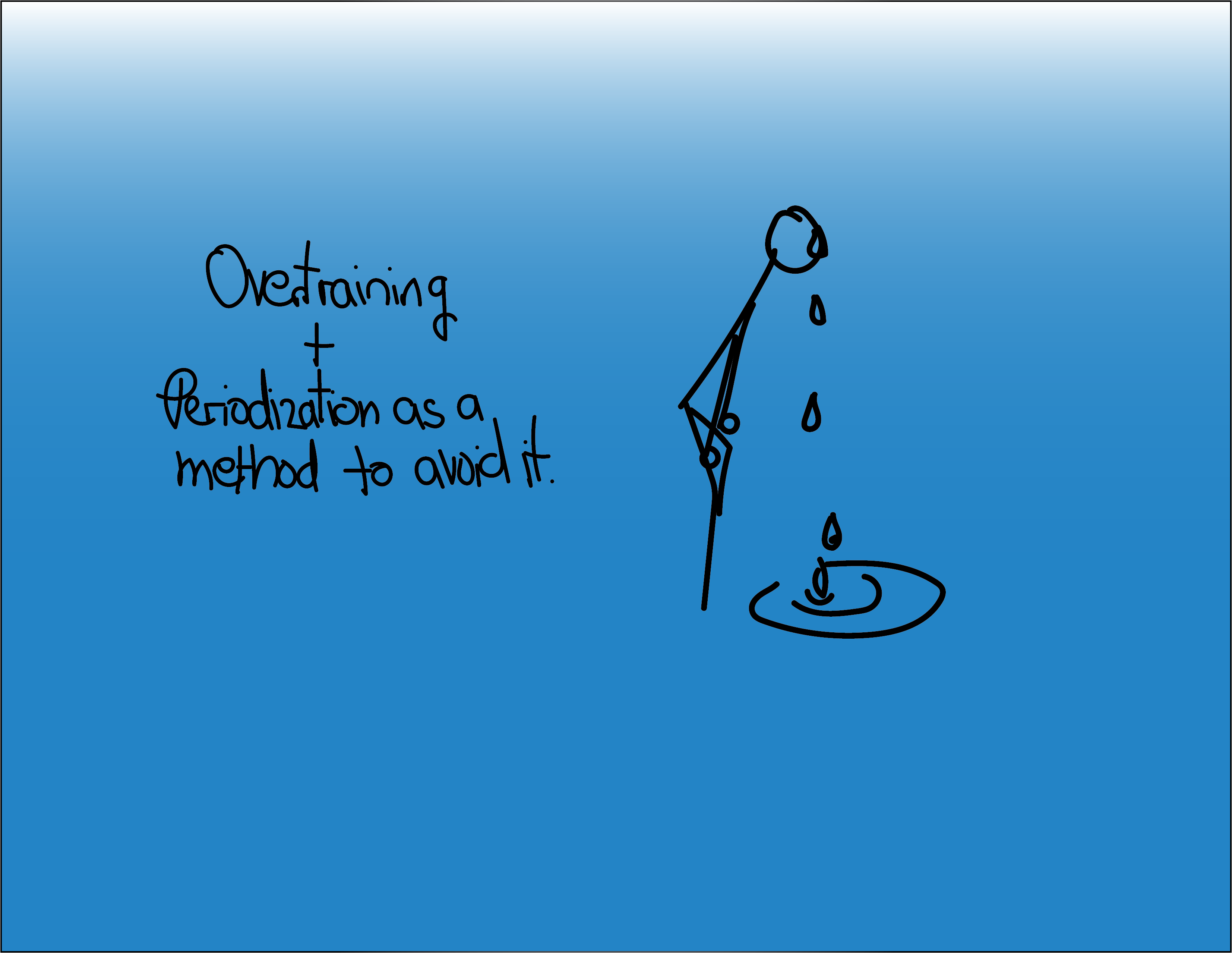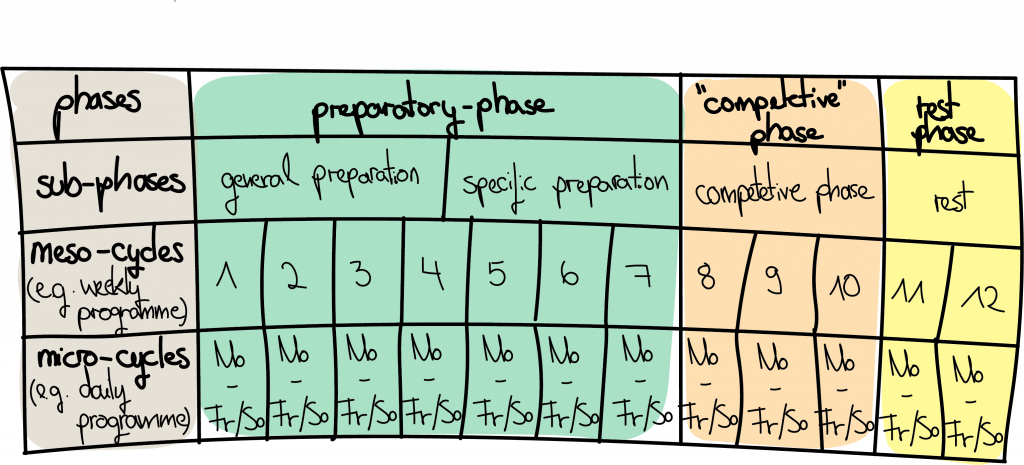
Overtraining and periodization as a method to avoid it
Overtraining happens when excessive practice/ training meets inadequate rest/ recovery, meaning an overuse of the physical and also mental abilities of the dancer, which then leads into a decrease of performance or, even worse, to injuries. So overtraining causes the opposite of what we practice for: a stagnation or even decrease of performance. It is the result of wrong training and therefore avoidable.
Without a doubt for a freelance dancer, practicing on his/her* own, not getting paid vacation etc., it is hard to continuously plan their training ahead and estimate a good time for a yearly rest, when there is always the possibility of short-term incoming job requests.
But besides these obstacles, there is a possibility that you can adapt to your needs (timewise) pretty well, which is called periodization of training. It´s based on the principle of arranging your training/practice into certain phases with alternating training loads, which sum up to one training period. This principle of a training period with different phases can then be repeated, depending on the length of the cycle you choose: One period could last a year but also only a few months. Here is an example on how this would look like:
 Example of a 3 month long training period.
Example of a 3 month long training period.
You always start with a preparatory phase.
In the time of the general preparation you would attend general dance practices or would practice your dance yourself (e.g. technique/ concepts/ choreography/ improvisation or whatever you are involved in) and additionally would supplement your dance training with general fitness training to work on your endurance, strength, flexibility etc. You would for example plan this preparatory phase to last one month and then make a weekly plan on what you want to train when, so that you balance out endurance, strength, flexibility and dance training. What follows is a more specific preparation phase, in which the practice load gets lower but the intensity higher. This phase could last e.g. three weeks. In this time, the dance training gets more specific towards what stands at the end of this training period (e.g. a competition, a showcase, a dance theatre piece etc.). You would now concentrate on practicing the technique you need for your competition/ performance etc. The supplemental training would become less and also more specific to the needs of the competition/ performance etc. So e.g. if you are training for a battle, you need to be able to have the endurance for short dance rounds throughout a whole day or evening, without getting tired/ weak/ less creative or so.
The next phase is the competitive phase, which you can again separate in pre competitive and competitive phase. The pre-competetive phase are a couple of days just before the competition/ performance/ show or whatever, on which you should rest. In this time there can happen video-analysis or even final-rehearsals, which have to be very short, so that there will be no real physical stress, e.g. dress rehearsal. This is time for your body to recover, so that you are then able to perform in full power in the competitive phase. If you have a real phase of performances, competitions etc. lets say 2-3 weeks, you should keep practice/ rehearsal sessions as short and intense as possible, if they are necessary to do at all.
The final phase of this training period would then be the rest phase. After a training/ competition/ performance period of 2-3 month, this could be a few days to two weeks (depending also on your yearly plan) of resting, regenerating, partying and not practicing, before you would then again enter the preparatory phase and the whole cycle starts from the top.
Especially the days of total rest are a real challenge for every dancer, since we are not used to this handling. The common philosophy is “the more, the better”. But you are not doing yourself a favor by not resting all year. Sooner or later, it will lead to overtraining and injuries.
Thoughts?
Have a great one,
Lisa
